GALILEI
Galileo Galilei 1564-1642
Galileo Galilei was born February 15, 1564.
30 November 1609, he shocked the world with the idea of pointing the sky with a telescope aimed at the Venetian navy. He does not know yet that he is making a trip back in time.
Therefore, Galileo will open our eyes and sweep of centuries of obscurantism. More than four hundred years after Galileo's death, it is still not possible to speak of him without passion. He was commended for discoveries that did not make, for words he never uttered as "And yet it moves". The Church condemned him for defending a truth been recognized as such by itself. She has never forgiven or pardoned. His father, Vincenzo, was a man of broad culture, he combined the cloth trade with the music. Vincenzio did everything to awaken her son a taste of the arts. Galileo learned include the lute, his favorite instrument, the organ and consoled during the last days of his life. When Galileo was ten years old, the family returned for a time in Florence and sent him to his first class with the monks of Vallembrosa. Back in Pisa in 1581, he was enrolled at this university city. If Vincenzio had done everything to make his son Galileo made a humanist, yet he neglected mathematics, because he intended his son to study medicine, which then had nothing to do with mathematics. Galilee, asked a friend of the family to explain to him, unbeknownst to his father, some of the propositions of Euclid.
Galileo wanted to know if he could not understand him alone until the end. While pretending to study Hippocrates and Galen, always open on the table, he arrived without difficulty in the sixth book. Galileo studied for four years in his hometown, without obtaining any academic title.
He spent four years in Florence, interrupted by a brief trip to Rome. In 1589 he was appointed professor of mathematics at Pisa.
Galileo's discoveries: a very short time, Galileo discovered with his telescope, he had designed himself, sunspots and the phases of Venus, but also the fact that the Milky Way consists of stars and especially as moons revolve around Jupiter (Io, Europa, Ganymede and Callisto in 1612 and 1613), to how Earth and Mars revolve themselves around the Sun. Galileo may have outstripped Adams, Le Verrier and Galle, several centuries in the discovery of Neptune.
This is suggested by Australian physicist (David Jamieson, a professor at the University of Melbourne), from a careful reading of notebooks left by the great father of physics.
Image: Galileo Galilei 1564 - 1642, by Galileo in 1636, painted by Justus Sustermans.

Galileo Galilei the fighter
In his field, Galileo, has 25 years, already had its say. And he says quite emphatically to be called "the brawler". If in the course, he still clung faithfully to Aristotle and taught Ptolemaic cosmology, he preferred to have Archimedes. His first discovery, Galileo had made in Pisa, where, at age 19, he found the constant time of swing of the pendulum, comparing it to his pulse. At the end of his stay in Pisa, Galileo wrote his first book anti Aristotelian Del Motu, which will be published as three hundred years later, but much of which enter into the composition of his last and most important book: The Discourses . The problems addressed in Del Motu, occupy it throughout his life. At 28 years, Galileo left Pisa and Padua Grand Duke and the Republic of Venice. Appointed professor of mathematics for six years, he will finally 18.
Its association with the Venetian Marina Gamba born during his stay in Padua, a son, Vincenzo, and two daughters, Virginia and Livia. Both girls will be at the convent. In 1610, Galileo made many discoveries, including:
- The uneven surface of the moon.
- The Milky Way and nebulae were a star cluster.
- Four stars (satellites) revolving around Jupiter.
- Saturn in the triple body
- The phase of Venus...
Galileo, pointing his telescope to Saturn in 1610, has not seen surrounded by a ring but flanked by two kinds of ear loops in the words of the day (it's the Dutchman Christiaan Huygens understood in 1656 that it is a ring structure).
When Galileo made his comments on Venus, he left Florence for Padua, and the eighteen best years of his life were well finished, and he cherished the idea of leaving the atmosphere rather shabby of a city where his material situation was not brilliant.
In the same year, 1610, Galileo was appointed the first mathematician at the University of Pisa, without obligation to reside, and the first mathematician and philosopher of Tuscany.
For over 20 years in Florence, he was a mathematician philosopher advantage.
The glasses he used were not so small, reaching diameters of several tens of centimeters to a magnification of several tens of times.
Image: In this painting by Jean-Léon Huens, Galileo explains his findings to two cardinals. Galileo's telescope (70 mm diameter) increases only by a factor of 6, the vision of the pupil, and yet it is with this little magnification than Galileo could see the moons of Jupiter.
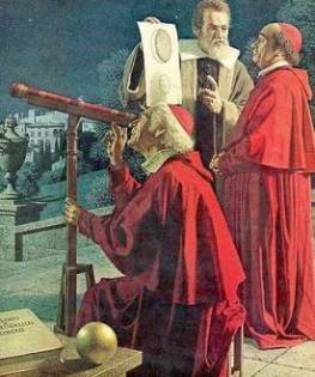
Galileo Galilei held by the Sacred Congregation
It was now preparing to appear on the scene of the world to defend the cause of Copernicus.
In 1632, Galileo wrote a book that dealt with the Copernican system. But six months after the book appeared, its circulation was banned and all copies seized. Two months later, the Catholic Church ordered Galileo to appear in Rome to be tried. In 1633, it is a fragile old man of nearly 70, who arrived in Rome. Friends of Galilee demanded that we had mercy on him but in vain. Threatened with torture, he replied: "I am in your hand. Make me what you want."
On 22 June of that year, Galileo was condemned unanimously by the council of the Inquisition to abjure and detention of the Holy Congregation: "We pronounce, judge and declare that you, Galileo, you've made vehemently suspected of heresy... and believed to have supported a false doctrine and contrary to the divine and sacred writing, that the sun is the center of the universe, he does not move from east to west, that the Earth moves and is not the center of the world."
Ten days later, Galileo spoke, kneeling in the church of Santa Maria sopra Minerva in Rome, the formula of abjuration which began: "I, Galileo, in the seventieth year of my age, made personally justice and having before their eyes the Holy Gospels which I touch with my own hands with a heart and a sincere faith, I abjure, curse me and I hate the error, heresy of the movement of the earth".
A week after the abjuration, Galileo was allowed to live under house arrest in Siena, at Archbishop Piccolomini, his friend, the amiable conversation gave him "much satisfaction and peace of mind" that felt able to resume after some time, his studies on the strength of materials and other crops.
Eight years later, January 8, 1642, after two months of illness, Galileo died at the age of seventy-seven.
Order of the Grand Duke's body was buried in Galilee a side chapel of Santa Crose where was the family mausoleum.
Since March 12, 1737, the body of Galilee, who died in 1642, rests in the Basilica of Santa Croce in Florence.
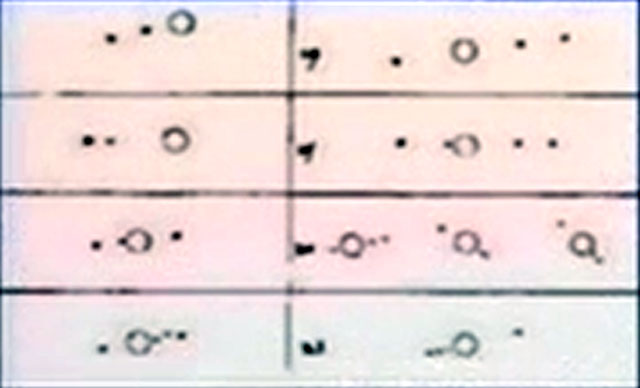
Image: The moons of Jupiter designed by Galileo in his notebook unequivocally show the neighborhood changing Jupiter. His telescope 26 mm diameter brought a gain in flow and image fine (diameter of the telescope / pupil diameter night) squared, i.e. (26/6)2 = ≈18. But the quality of Galileo's telescope was so bad that the actual gain was only ≈6.
Articles on the same theme
1997 © Astronoo.com − Astronomy, Astrophysics, Evolution and Ecology.
"The data available on this site may be used provided that the source is duly acknowledged."
How Google uses data
Legal mentions
English Sitemap − Full Sitemap
Contact the author
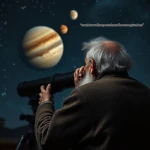 The Secrets Exchanged by Galileo and Kepler Were Coded
The Secrets Exchanged by Galileo and Kepler Were Coded
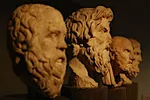 Influential Greek Thinkers
Influential Greek Thinkers
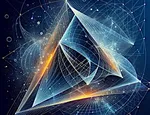 What do we know about Pythagoras (≈570-495 av. J.-C)?
What do we know about Pythagoras (≈570-495 av. J.-C)?
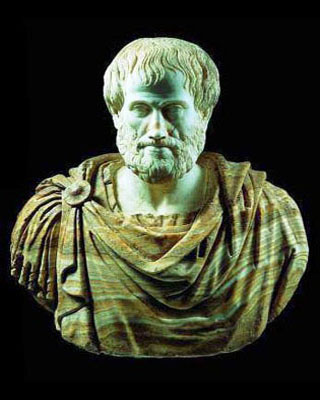 The philosophical characteristics of Aristotle (384 - 322 BC)
The philosophical characteristics of Aristotle (384 - 322 BC)
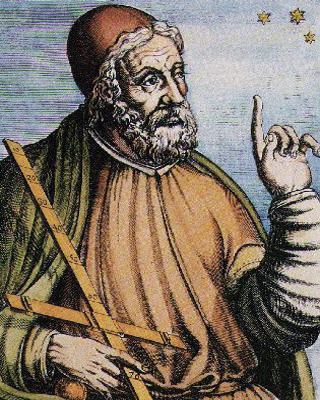 The world of Ptolemy (90-168)
The world of Ptolemy (90-168)
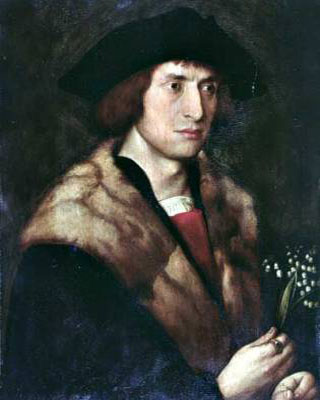 The theory of Copernicus (1473-1543), heliocentrism
The theory of Copernicus (1473-1543), heliocentrism
 Kepler (1571-1630), planets follow ellipses
Kepler (1571-1630), planets follow ellipses
 Newton (1643-1727) and gravity
Newton (1643-1727) and gravity
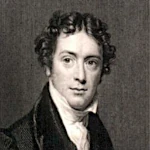 Michael Faraday, Self-Taught Genius: The Origins of Electrodynamics
Michael Faraday, Self-Taught Genius: The Origins of Electrodynamics
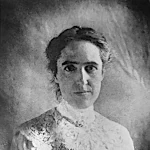 Henrietta Swan Leavitt (1868-1921), A Pioneer in Astronomy
Henrietta Swan Leavitt (1868-1921), A Pioneer in Astronomy
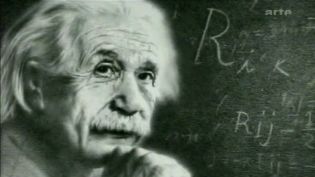 Einstein (1879-1955) and the concept of time
Einstein (1879-1955) and the concept of time
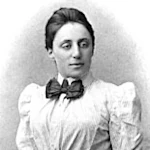 Amalie Emmy Noether (1882-1935), the Mathematician Who Revolutionized Algebra
Amalie Emmy Noether (1882-1935), the Mathematician Who Revolutionized Algebra
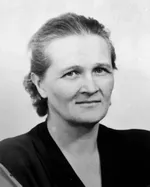 Cecilia Payne (1900-1979), the Scientist Who Revealed the Composition of Stars
Cecilia Payne (1900-1979), the Scientist Who Revealed the Composition of Stars
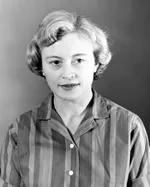 Margaret Burbidge (1919-2020): An Exceptional Journey in Astrophysics
Margaret Burbidge (1919-2020): An Exceptional Journey in Astrophysics
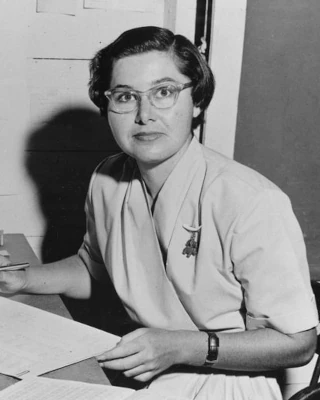 Vera Rubin (1928-2016), Revealer of the Invisible, Pioneer of Dark Matter
Vera Rubin (1928-2016), Revealer of the Invisible, Pioneer of Dark Matter
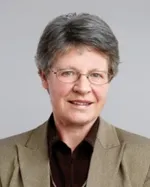 Jocelyn Bell Burnell (1943-), the Scientist Who Discovered Pulsars
Jocelyn Bell Burnell (1943-), the Scientist Who Discovered Pulsars
 Quotes about Science
Quotes about Science
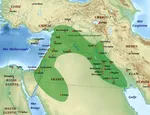 Babylonian Astronomy and Astrology: History and Contributions
Babylonian Astronomy and Astrology: History and Contributions
 Galilean Cutoff or the Beginning of Modern Physics
Galilean Cutoff or the Beginning of Modern Physics
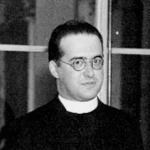 Georges Lemaître: The Primeval Atom at the Origin of the Cosmos
Georges Lemaître: The Primeval Atom at the Origin of the Cosmos